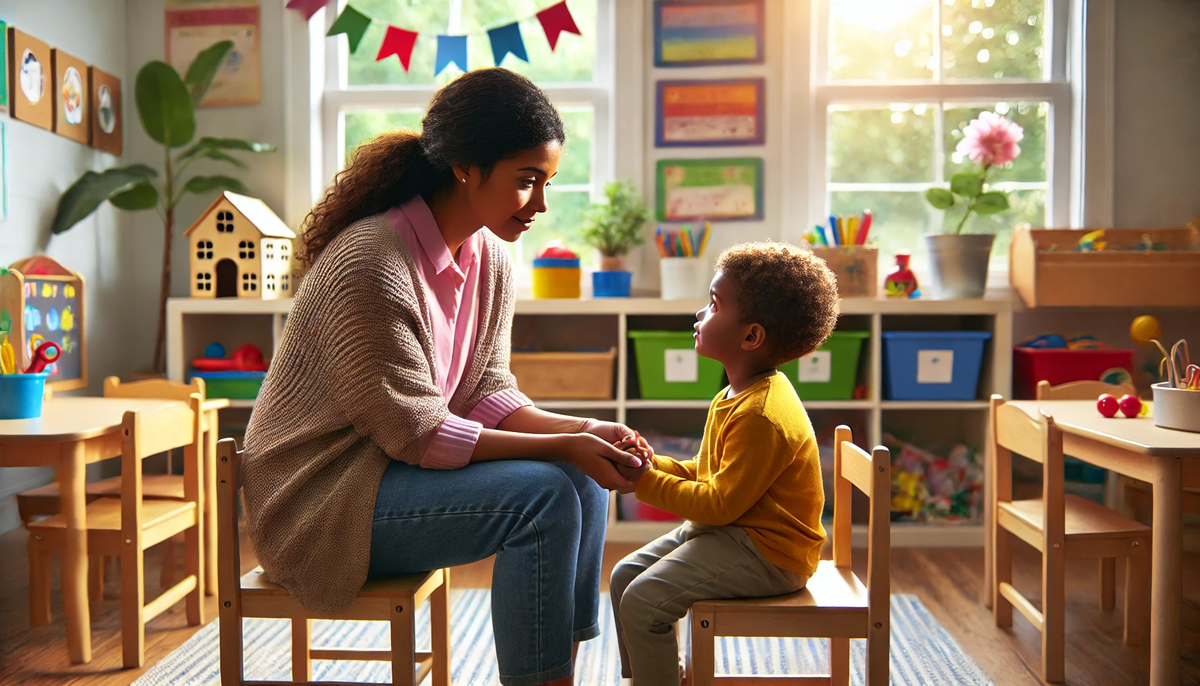How to Support Children After the Election: Guidance for Parents and Educators
As election season comes to a close, the aftermath can leave many adults and children grappling with a range of emotions—from relief to disappointment and even uncertainty about the future. Here are ten recommendations to help children feel safe and supported.

As election season comes to a close, the aftermath can leave many adults grappling with a range of emotions—from relief to disappointment, and even uncertainty about the future. Children are not immune to these feelings; they often sense the emotional climate around them and may have their own questions and concerns about what the election results mean for their lives.
It’s crucial for parents, caregivers, and educators to provide support and guidance to help children process their feelings and navigate the post-election period. Here are comprehensive strategies, backed by experts in child psychology and education, to help you communicate effectively with children about the election results.
1. Maintain a Calm and Reassuring Presence
Children look to adults for cues on how to react in uncertain situations. Displaying a calm and composed demeanor can help alleviate their anxiety. According to the American Academy of Pediatrics, when adults manage their emotions effectively, it provides a sense of security for children.
Action Steps:
• Self-Regulation: Before discussing the election, take a moment to assess and manage your own emotions. Techniques like deep breathing, mindfulness, or a brief walk can help center your thoughts.
• Positive Language: Use reassuring words and maintain a steady tone of voice to convey stability.
2. Encourage Open Dialogue and Questions
Creating an environment where children feel safe to express their thoughts and ask questions is essential. Child development experts emphasize the importance of active listening and validating children’s feelings without immediate judgment or dismissal.
Action Steps:
• Active Listening: Give your full attention when your child speaks. Acknowledge their feelings with phrases like, “I understand you’re feeling worried.”
• Open-Ended Questions: Encourage deeper conversation by asking questions like, “What are your thoughts about the election?” or “How does this make you feel?”
3. Provide Age-Appropriate Explanations
Elections involve complex issues that can be confusing for children. Simplify explanations based on their developmental level to help them understand without causing unnecessary alarm.
Action Steps:
• Simplify Concepts: Use relatable analogies or stories to explain democratic processes.
• Avoid Overloading: Provide information in small, digestible amounts to prevent overwhelming them.
4. Focus on Core Values and Principles
Discussing core values such as fairness, kindness, and respect can help children make sense of the election in a broader context. Emphasizing these principles reinforces positive social behaviors.
Action Steps:
• Value-Based Discussions: Highlight how democratic processes are meant to uphold values like justice and equality.
• Modeling Behavior: Demonstrate these values in your interactions with others, especially during disagreements.
5. Limit and Monitor Media Exposure
Continuous news coverage can heighten anxiety and expose children to inappropriate content. The American Psychological Association advises setting boundaries on media consumption to protect children’s mental well-being.
Action Steps:
• Set Limits: Establish specific times for media use and stick to them.
• Co-Viewing: Watch news programs together to provide context and answer questions immediately.
6. Encourage Critical Thinking
Helping children develop critical thinking skills empowers them to analyze information and form their own opinions. This is particularly important in an age of misinformation.
Action Steps:
• Discuss Sources: Teach them to consider where information comes from and to question its credibility.
• Explore Multiple Perspectives: Encourage looking at issues from different angles to understand the complexity of societal matters.
7. Promote Empathy and Understanding
Fostering empathy helps children appreciate diverse perspectives and reduces polarization. Teaching them to consider others’ feelings builds emotional intelligence.
Action Steps:
• Role-Playing: Use hypothetical situations to explore how others might feel.
• Community Involvement: Participate in community service activities to expose them to different walks of life.
8. Maintain Routines and Stability
Consistency provides a sense of normalcy and security. Keeping daily routines helps children feel grounded during times of change.
Action Steps:
• Consistent Schedule: Stick to regular meal times, bedtimes, and other daily activities.
• Family Rituals: Continue or establish family traditions that provide comfort and continuity.
9. Address Discrimination and Bias Openly
Elections can sometimes bring societal issues like discrimination to the forefront. Addressing these topics head-on is important to educate and protect your child.
Action Steps:
• Honest Conversations: Discuss incidents of discrimination in an age-appropriate manner.
• Empowerment: Teach them how to stand up against bias safely and respectfully.
10. Seek Professional Support if Necessary
If your child exhibits signs of significant distress—such as changes in appetite, sleep disturbances, or withdrawal from activities—they may benefit from professional support.
Action Steps:
• Consult Professionals: Reach out to pediatricians or child psychologists for guidance.
• School Resources: Utilize school counselors and support programs available through educational institutions.
Conclusion
Supporting children after an election involves patience, open communication, and a focus on shared values. By providing a stable and understanding environment, you help them process their feelings and foster resilience. The goal is not only to help them cope with current events but also to equip them with the skills to engage thoughtfully and compassionately in civic life as they grow.
Expert Resources for Further Guidance:
• American Academy of Pediatrics (AAP): Talking to Children About Tragedies & Other News Events
• American Psychological Association (APA): How to Talk to Children About Difficult News
• Child Mind Institute: Helping Children Cope After a Traumatic Event
• National Association of School Psychologists (NASP): Talking to Children About Violence: Tips for Parents and Teachers
By utilizing these strategies and resources, you can play a pivotal role in helping children navigate the complexities of the post-election period with confidence and compassion.
